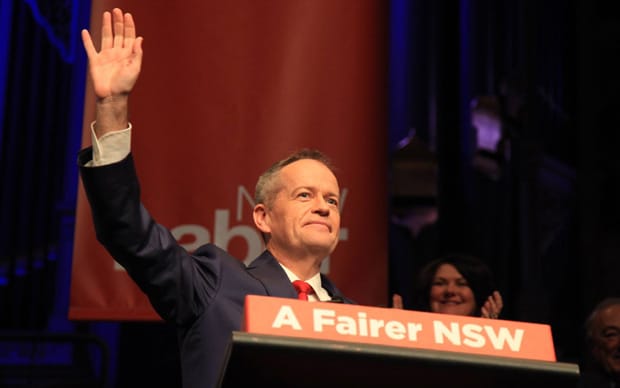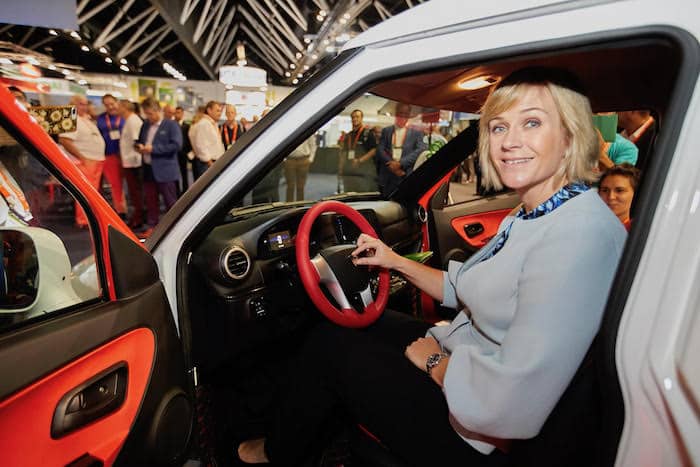Tomorrow, Saturday May 18, Australia votes to elect the nation’s next Federal government. The ABC’s Vote Compass shows a majority of Liberal-National Party Coalition, Australian Labor Party and Greens voters want to make this the “climate change election“.
Accordingly, the Climate Council has studied the three largest parties’ policies on climate change and renewables.
Let’s take one last look at how each of the three major contenders shape up on energy policy.
Liberal National Party (LNP) Coalition
On the plus side, the governing Coalition led by Prime Minister Scott Morrison has a modest emissions reduction target of 26-28 per cent on 2005 levels by 2030. It also signed up to the Paris Agreement to reach net-zero emissions by 2050.

The Coalition has also outlined plans to develop electric car and hydrogen strategies. Meanwhile, it’s committed to a Renewable Energy Target (RET) of 23.5 per cent renewables by 2020.
But don’t get too excited…
- The Coalition’s pro-coal lobby, led by Tony Abbott, has consistently tried to reduce or scrap emissions targets.
- The LNP support the controversial Adani coal mine in Queensland.
- The Morrison Government will not rule out new coal-fired power as an integral part of Australia’s energy mix.
- The plans concerning electric car uptake and hydrogen development are basic and aspirational rather than practical.
- The RET will end in 2020 leaving the renewables industry unsupported and with no plans to replace it.
- The Coalition ditched former PM Malcolm Turnbull’s flagship energy policy, the National Energy Guarantee, in August 2018. This left Australia with no policy for its energy future.
- The coalition has consistently tried to frame what others call a climate change election as a vote on the economy.
Australian Labor Party (ALP)
The Labor Party gets better marks across the board on climate action and promotion of renewable energy like solar panels and battery storage.

The ALP wants to cut emissions by 45 per cent on 2005 levels by 2030. It’s also pledged net zero emissions by 2050. The goal is 50 per cent renewables by 2030. Also promised under a Shorten Labor Government:
- A national electric vehicle target of 50 per cent new car sales by 2030.
- A $1 billion plan to kick-start Australia’s hydrogen-powered economy.
- Doubling of the $10 billion investment managed by the government’s Clean Energy Finance Corporation.
- A $2,000 solar battery rebate per household to achieve a million batteries by 2025.
- A $100 million Neighbourhood Renewables Program. This will give renters and social housing tenants access to renewable energy like solar power.
However, it’s not all rosy in Labor’s eco-policy garden. Labor also has no active plans to phase out coal. As a result, the ALP is sitting on the fence over the Adani mine. It also has no plans to phase out gas generation.
The Australian Greens
This environmentally-friendly party has very little chance of winning government outright in this climate change election. However, it’s a great advocate for the health of the nation. Greens candidates in Parliament also help keep the ruling party on a green-conscious track.

As a result, the Greens green-sweep the board on every aspect of climate action, renewable energy policy and environmental protection:
- Emissions reduction target of 63-82 per cent by 2030.
- Net-zero emissions by 2040.
- 100 per cent renewables by 2030.
- Complete ban on new internal combustion vehicles by 2030.
- A 17 per cent tax on luxury fossil-fuelled cars.
- Phase out thermal coal using a rising annual limit on coal exports.
- Phase out gas generation by 2030.
- Scrap the proposed Adani coal mine.
- Development of hydrogen industry and hydrogen export infrastructure.
- Creation of ‘solar fuels’ export hubs in key locations around Australia.
- Double energy efficiency and productivity by 2030.
Independents in the climate change election
Independent candidates around the country are also taking climate issues up to the main party players. This may prove a challenge to many previously safe Coalition seats in urban areas.
Independent Zali Steggall is posing a real threat to sitting Liberal MP Tony Abbott in the Northern Sydney Division of Warringah. And it’s largely due to her anti-coal, pro-renewables policy.

A former Olympic skier, Steggall claims the Coalition has bailed on meaningful action concerning climate change, renewable energy and support for electric cars.
In turn, Abbott has been one of the Coalition’s most vocal supporters of fossil fuels. The pair locked policy horns in a live Sky News debate on May 3. While traditionally conservative, the seaside constituents of Warringah are acutely environmentally aware, so this is ground zero for the climate change election.












































